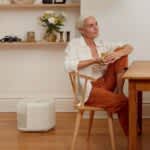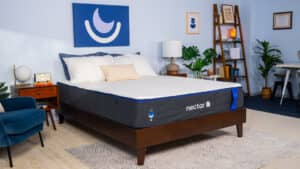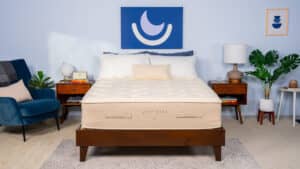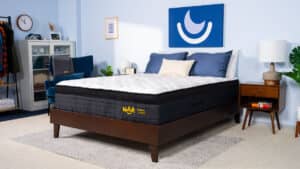The number of young children being given melatonin is skyrocketing, and recently several daycares have been in the news for drugging kids to get them to sleep.
Sleep Doctor wanted to understand how common the practice is of parents giving their children substances to help them sleep, and how this behavior differs among generations of parents.
In April, we surveyed 1,201 parents across different age groups to find out if they have ever given their children substances to aid with sleep.
Notable findings:
- 79% of parents have given their child a substance for the primary purpose of aiding sleep
- 66% of parents have given melatonin; 25% gave it to a child 3 years old or younger
- 35% of parents say they have given benadryl to get their child to sleep
- 20% have given their child prescription sleep aids
Seventy-Nine Percent of Parents Have Given Their Kids a Substance to Help Them Sleep
Of parents surveyed, 79% say they have given their child a medication or substance where the primary reason was to help them sleep.
Millennials and Gen Z parents were more likely to say they’ve given their kid substances to aid sleep, with 84% and 83% respectively saying they have. Men were also more likely than women to say they gave their child a substance to assist with sleep (82% of men vs. 75% women).
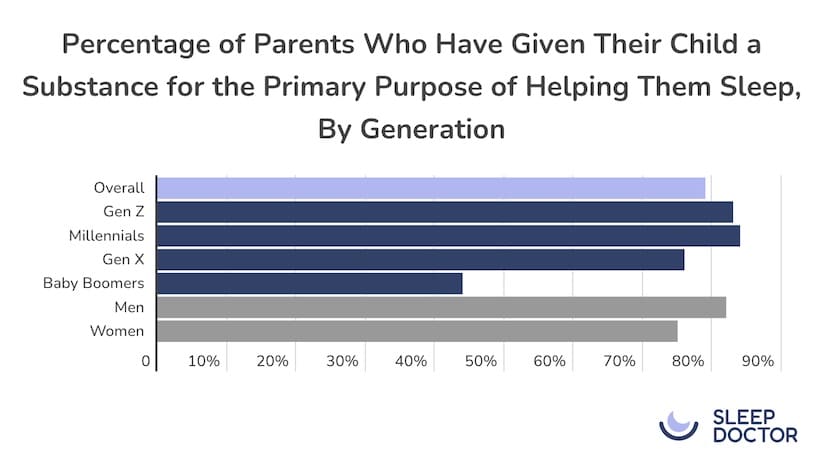
Two-Thirds of Parents Have Given Their Child Melatonin
Two-third of parents surveyed say they have given their child melatonin to help them sleep.
The majority of parents (97%) gave their child melatonin more than once. The plurality of parents (21%) gave melatonin to their children about 10 times, while 16% gave it about five times, 14% about two to three times, and 3% only once. Further, 13% of parents say they gave melatonin to their child 50 times or more.
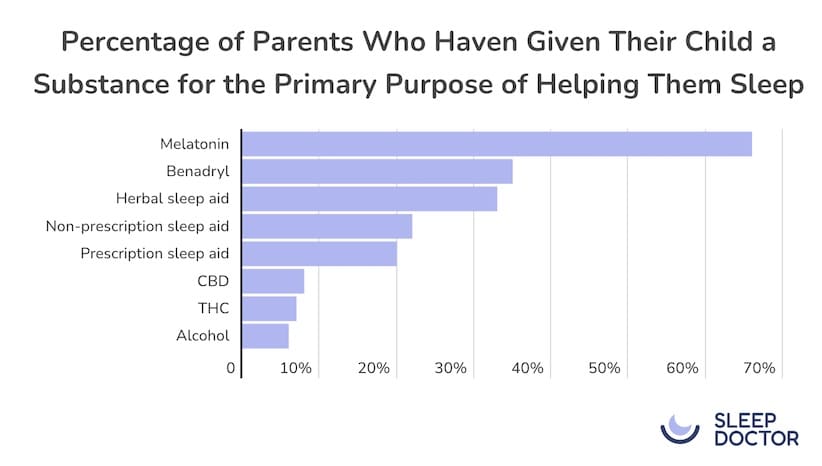
A number of parents have given this product to their babies and toddlers. Of parents who gave their child melatonin, 2% gave it to a child under six months old, 3% to a child six to 11 months old, and 20% to a child one to three years old.
Less than half (45%) of parents say the use of melatonin was recommended by their doctor every time it was given, while 42% say some of the time, and 13% say never.
“The problem with over-the-counter melatonin supplementation is that it is unregulated and often found to contain improper doses of the melatonin hormone,” says Dr. Vyas. “Additionally, not enough studies have been conducted on children to determine the appropriate dose of it and its long-term consequences. It is more optimal for parents to use light modulation to impact sleep onset rather than medications.”
One in Five Have Given Their Child Prescription Sleep Aids
Twenty percent of parents surveyed say they gave their child prescription sleep aids, such as Ambien, Sonata, or Restoril, to help them sleep.
Once again, a number of parents gave these substances to their babies and toddlers. Of parents who gave their child prescription sleep aids, 4% gave it to a child under six months old, 11% to a child six to 11 months old, and 16% to a child one to three years old.
The majority (64%) of parents say the use of the prescription sleep aid was recommended by their doctor every time it was given, while 34% say some of the time, and 2% say never.
While some parents only gave a prescription aid once (5%) or two or three times (15%), many gave it a number of times. In fact, 13% of parents say they did 50 or more times.
One in Ten Parents Found a New Mattress Helped Child Sleep
Parents also have used a number of strategies that don’t involve substances to help their child sleep. The top strategies include having a bedtime routine (81%), setting a sleep schedule (72%), and turning off screens at a certain time (58%).
Additionally, 16% say they tried a new mattress, and of parents who did, 74% (or 12% of the total sample) say the mattress did help the child sleep better.

Dr. Vyas says there are many strategies parents can employ to help their kids sleep that don’t involve medication.
“Consistency of routine is critical. Also, following the child’s sleep cues will ensure they fall asleep when their body is optimized. If a child is woken daily at the same time, they will fall into a better sleep routine for daytime naps and at bedtime.”
Additionally, she says to:
- Minimize blue light stimulation from devices at least 2 hours before designated bedtime to help allow the body’s natural melatonin production
- Ensure exposure to daylight and sunset to help regulate the child’s circadian rhythm
- Teach the child to fall asleep independently
- Use the assistance of a sleep coach to work through troublesome areas of sleep onset
The survey was completed via SurveyMonkey in April 2024. In total, 1,201 parents were surveyed.
Ask the Sleep Doctor
Have questions about sleep? Submit them here! We use your questions to help us decide topics for articles, videos, and newsletters. We try to answer as many questions as possible. You can also send us an email. Please note, we cannot provide specific medical advice, and always recommend you contact your doctor for any medical matters.














